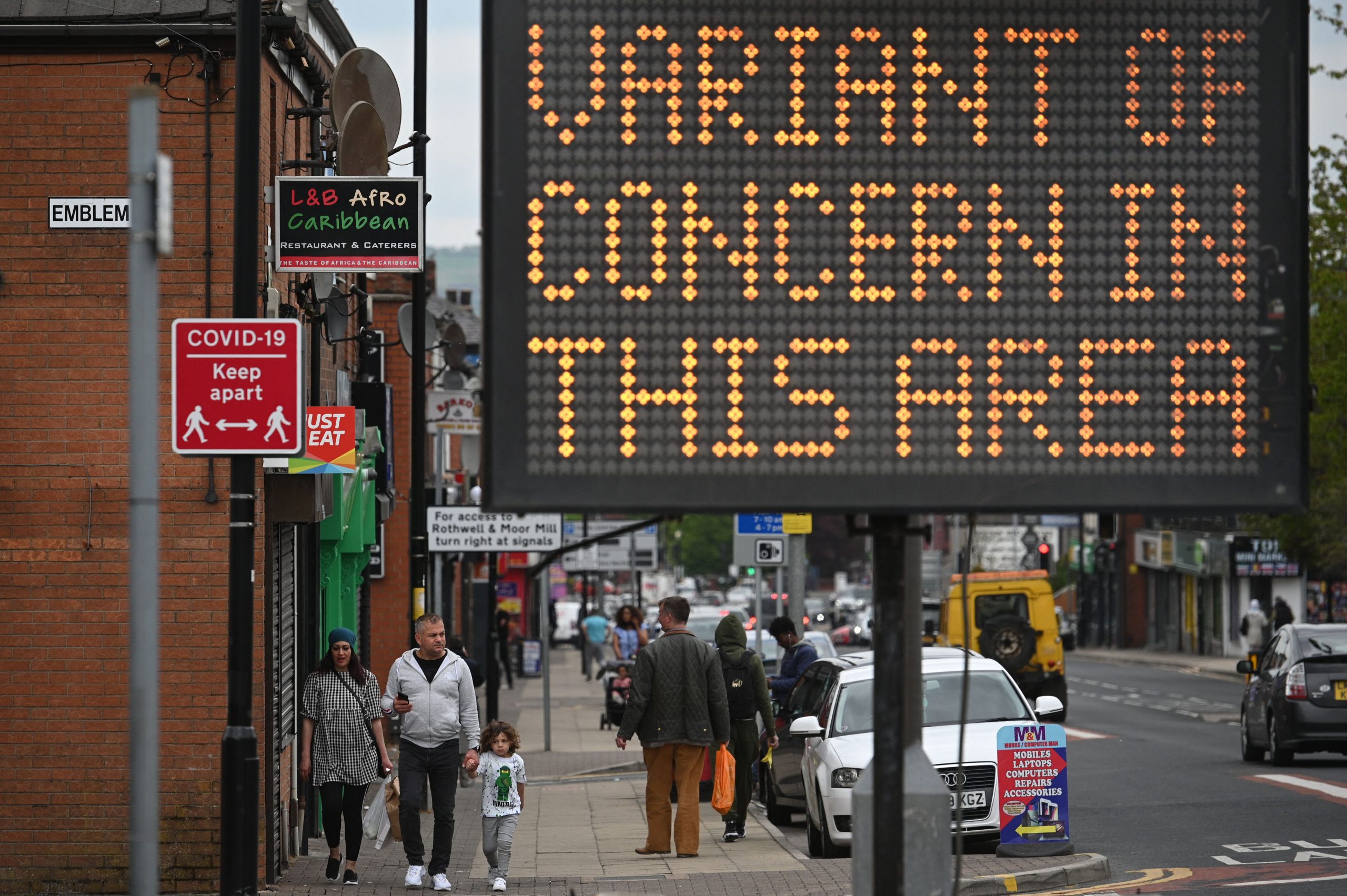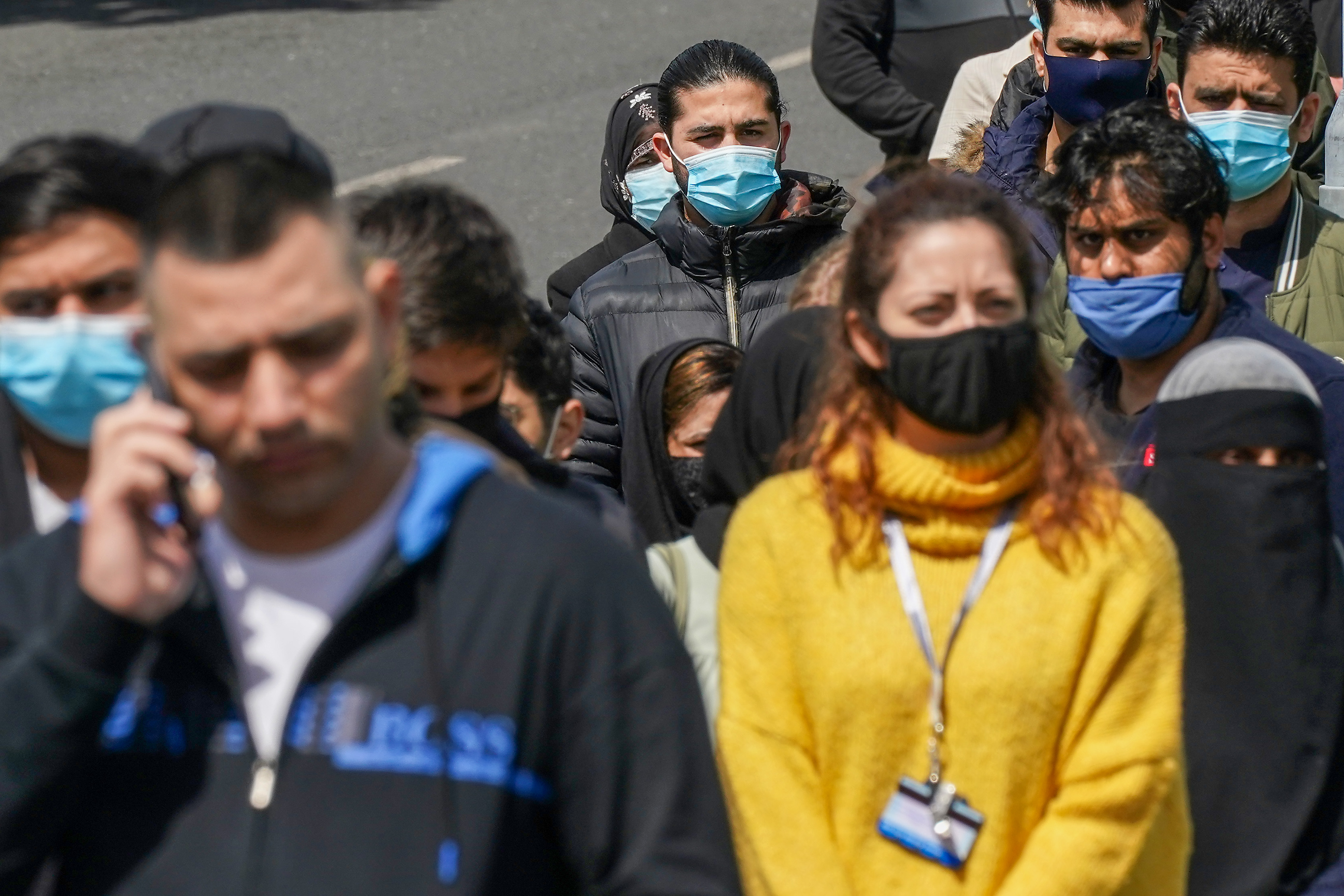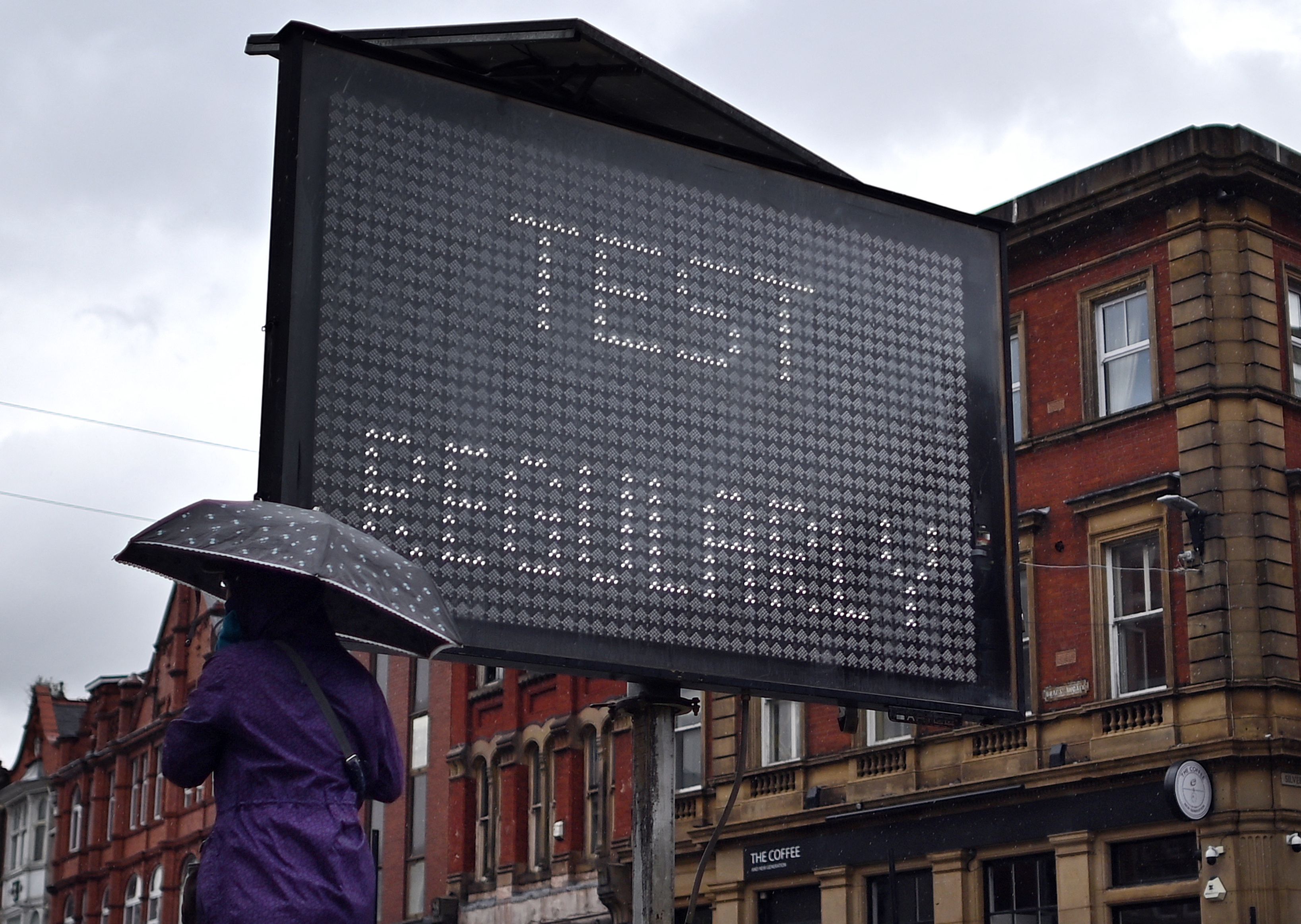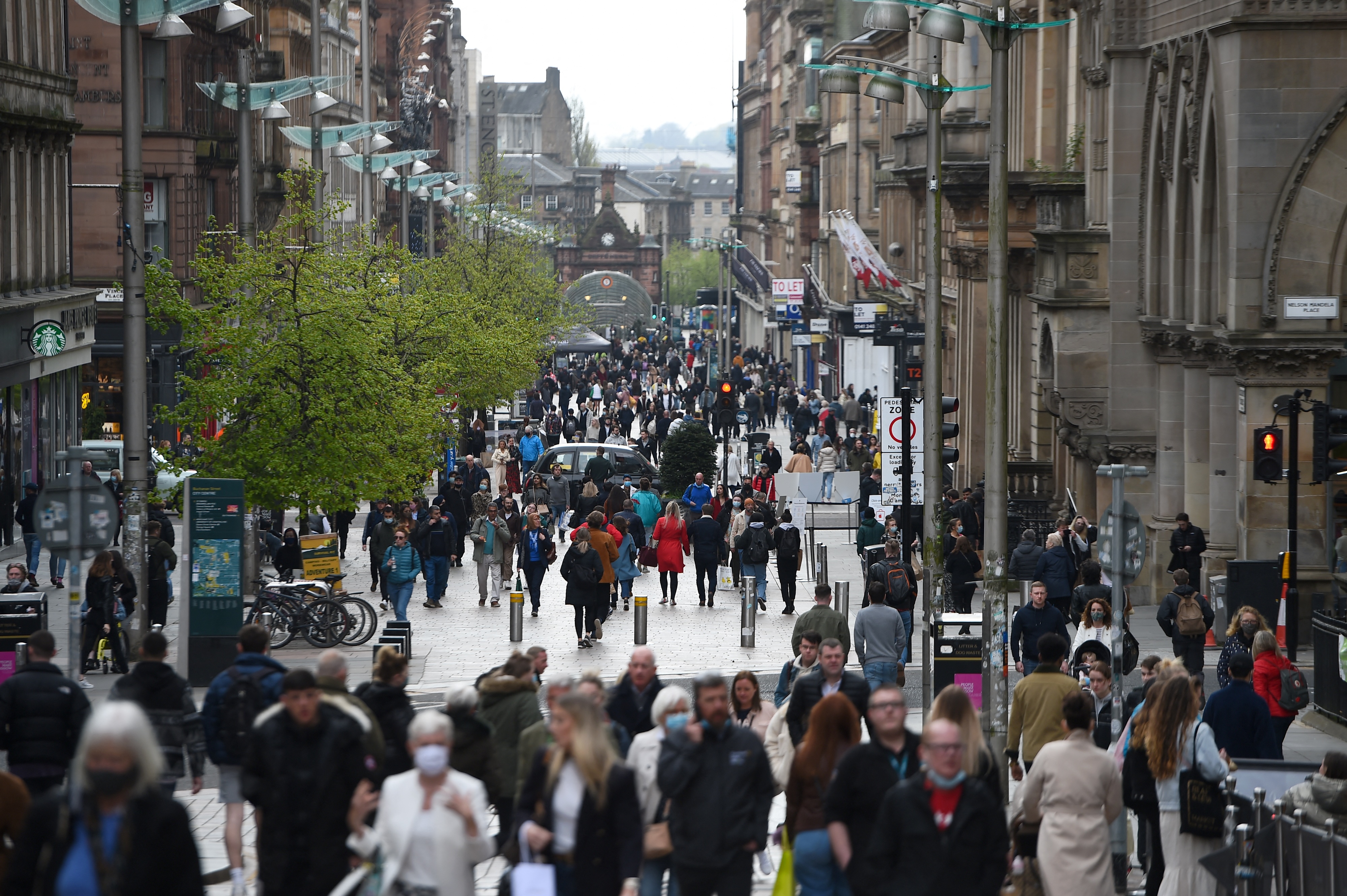Will there be local lockdowns again in the UK?


Parenting advice, hot topics, best buys and family finance tips delivered straight to your inbox.
You are now subscribed
Your newsletter sign-up was successful
Whether there will be local lockdowns again in the UK is the topic on everyone’s mind as eight local councils have been advised to act cautiously in light of risks posed by the Indian variant.
Restrictions were only just lifted for many on May 17, allowing travel to green list countries and more people to meet outside and indoors. With restrictions currently at their most relaxed since last year, it seemed as though the lockdown roadmap was going ahead as planned.
However, as cases of the Delta variant found in the UK have more than doubled in just one week, the government have started to taken action in high risk areas to stop the spread.
Will there be local lockdowns again in the UK?
The government aren't officially re-introducing local lockdowns at this stage, but they have issued new advice specifically for certain areas in the UK.
Eight areas in England are now subject to different recommended restrictions and advice compared to the rest of the country, based on the prevalence of the Delta variant in those areas.
The areas that have been issued with new advice regarding lockdown rules are:
- Bedford Borough Council
- Blackburn with Darwen Borough Council
- Bolton Metropolitan Borough Council
- Burnley Borough Council
- Kirklees Council
- Leicester City Council
- London Borough of Hounslow
- North Tyneside Council
New guidance for these areas was published on the government’s “what you can and cannot do” page online. It advises those in areas worst hit by the new variant to meet outside rather than inside where possible and keep two metres apart from people you don’t live with (unless you’re in a support bubble).
Parenting advice, hot topics, best buys and family finance tips delivered straight to your inbox.
Much like the circuit breaker lockdown last year, the advice was originally also to avoid travelling in and out of the affected area unless it was absolutely essential (if you cannot work from home, for example). However, the government have now backtracked on this advice and urged people to "minimise travel in and out of affected areas" where possible.

This advice contradicts much of the government’s recent guidance. Most recently, the ‘rules’ on hugging changed to allow people personal contact with those they don’t live with, nor are in a support bubble with.
The ‘stay at home’ rule banning all non-essential travel was scrapped under the first lifting of restrictions in March, allowing hotels to open up again to members of the same household.
Areas affected by the new rules say they were not told about the advice, with North Tyneside Council saying local officials didn’t know about it until three days after it came into effect. While Blackburn with Darwen’s director of public health, Dominic Harrison, said that the affected areas “were not consulted with, warned of, notified about, or alerted to this guidance.”

However, Downing Street told the BBC that all areas were told about the new advice.
There currently hasn’t been any update from either the Prime Minister or Health Secretary Matt Hancock on the changes. Mr Hancock did urge those vulnerable to the virus to ensure they have their second vaccine to protect themselves against new virus variants. He also announced that surge testing was taking place in six areas where the new variant, first identified in Indian, was present but didn’t outline specific rules or guidance at that time.
A Downing Street source also confirmed to the BBC that the new guidance was advisory, however, rather than legally obligatory as the tiered system of local lockdowns was last year.
Where at the areas at risk of local lockdown?
Areas with rising Covid-19 cases are most likely to be subject to new restrictions or rules if they are introduced in the future. The areas that have had rising coronavirus cases in the last week include:
- Rossendale (77 cases per 100,000 people)
- Hyndburn (67 cases per 100,000 people)
- Bury (61 cases per 100,000 people)
- Manchester (59 cases per 100,000 people)
- Chorley (58 cases per 100,000 people)
- Trafford (57 cases per 100,000 people)
- Bradford (52 cases per 100,000 people)
- Preston (50 cases per 100,000 people)
- Pendle (50 cases per 100,000 people)
There has been no news yet about whether these areas of the UK will become subject to local lockdowns in the next couple of weeks, as infection rates will be impacted by the increase in surge testing and vaccinations.
The steady rise in infections is one of the reasons why children may soon get the coronavirus vaccine, as they are rarely unwell or severely impacted by the virus, but can pass it onto those more vulnerable due to age and underlying health conditions.
Where has gone into local lockdown in Scotland?
Scotland lifted restrictions on May 17, with all areas - apart from Glasgow - going into either Level 2 or Level 1.

Glasgow has remained in Level 3 restrictions, which means that those in area cannot meet in groups of up to 6 people from 2 different households in an indoor public space such as a pub or restaurant. They can only meet in groups of six from six households outdoors in a garden or public place.
The city currently has a high number of cases with a 133.3 infection rate per 100,000 people.
Speaking on BBC Good Morning Scotland, Cabinet Secretary for Covid Recovery John Swinney said that the government was reviewing the restrictions "on a regular basis" but said that the measures in place were the right decision.
Are there going to be local lockdowns in Wales?
Currently, there doesn't appear to be any plans to put areas in local lockdown in Wales. The country is in Alert Level 2, meaning that indoor hospitality can open with six people from up to six households allowed. All holiday accommodation has been allowed to fully reopen, which includes visitors from other parts of the UK.
Up to 30 people can also take part in organised indoor events and up to 50 people in organised outdoor activities, which includes wedding receptions and wakes.
Are there going to be local lockdowns in Northern Ireland?
Northern Ireland doesn't have plans to put areas into local lockdown for the time being.
From Monday May 24, restrictions in Northern Ireland lifted to allow six people from two households to mix indoors, restaurants, pubs and other hospitality venues to reopen to indoor patrons, and international travel to certain pre-approved countries.

Grace Walsh is a health and wellbeing writer, working across the subjects of family, relationships, and LGBT topics, as well as sleep and mental health. A digital journalist with over six years experience as a writer and editor for UK publications, Grace is currently Health Editor for womanandhome.com and has also worked with Cosmopolitan, Red, The i Paper, GoodtoKnow, and more. After graduating from the University of Warwick, she started her career writing about the complexities of sex and relationships, before combining personal hobbies with professional and writing about fitness.